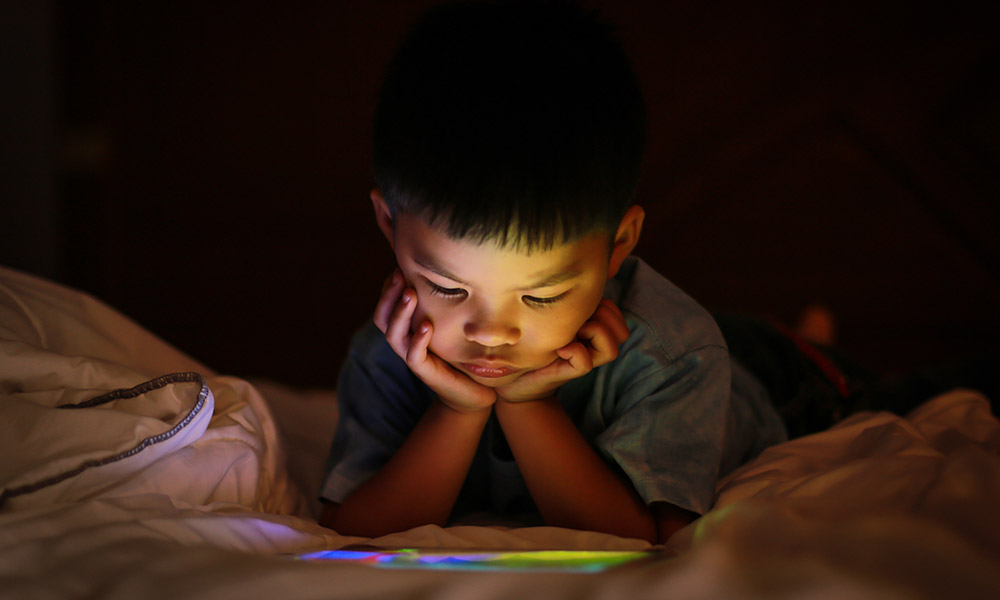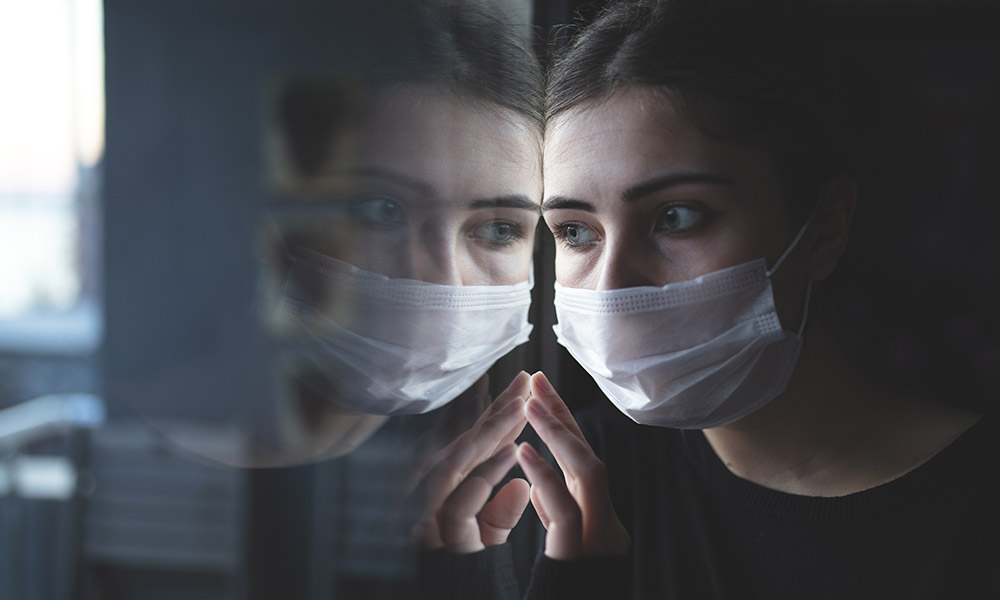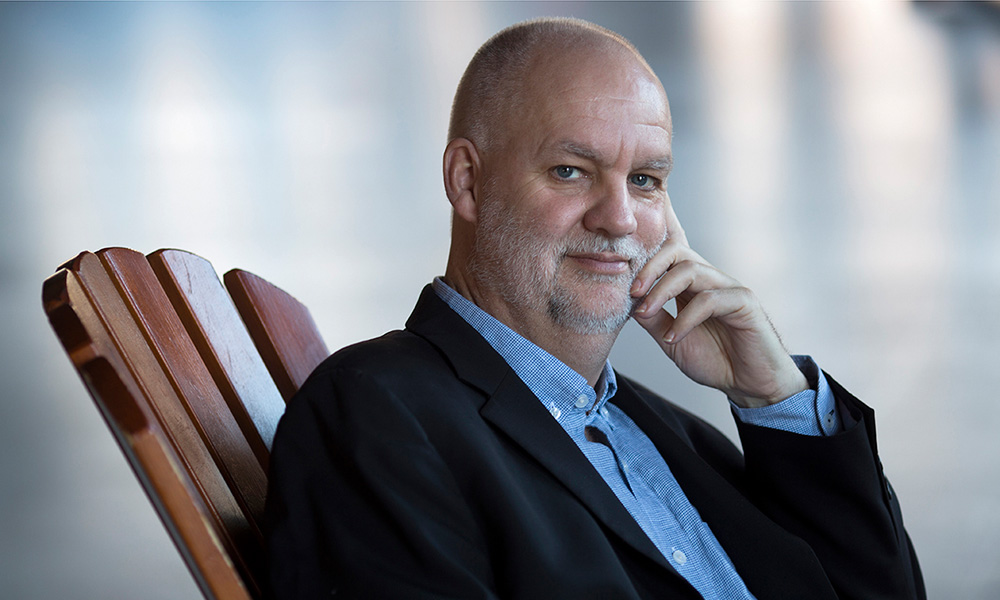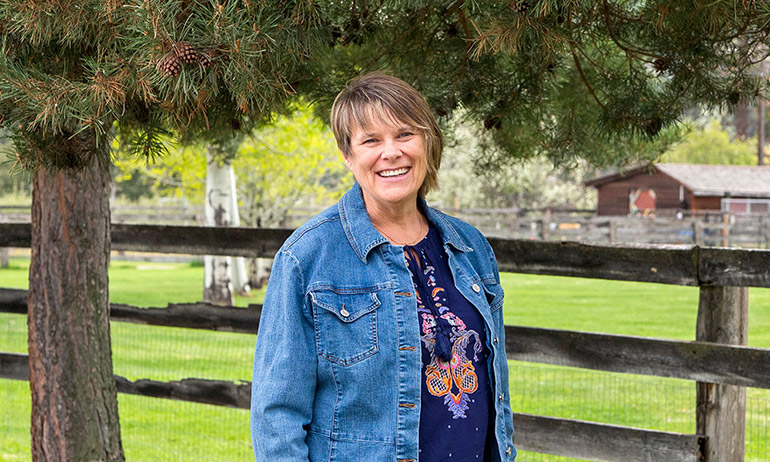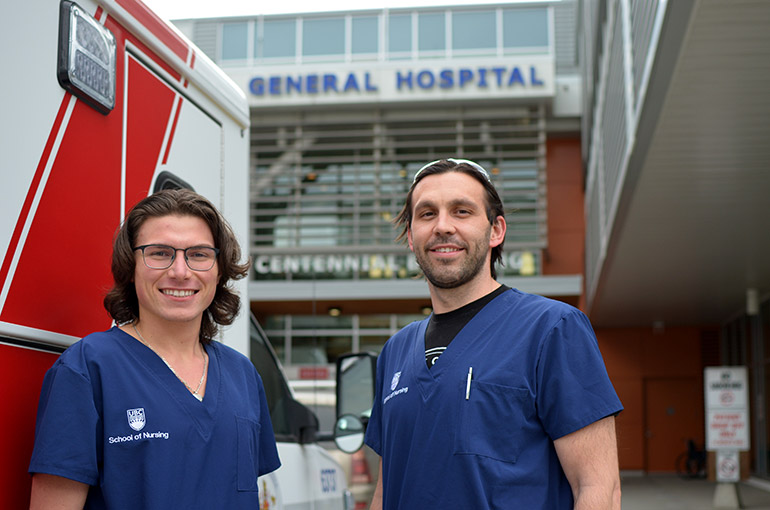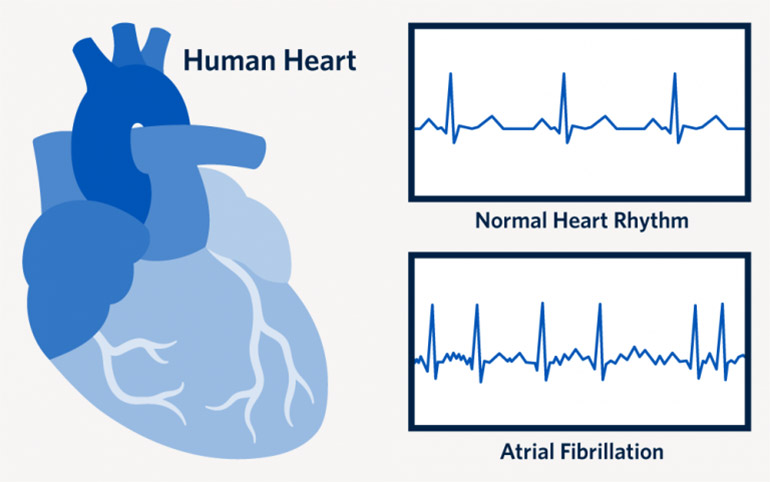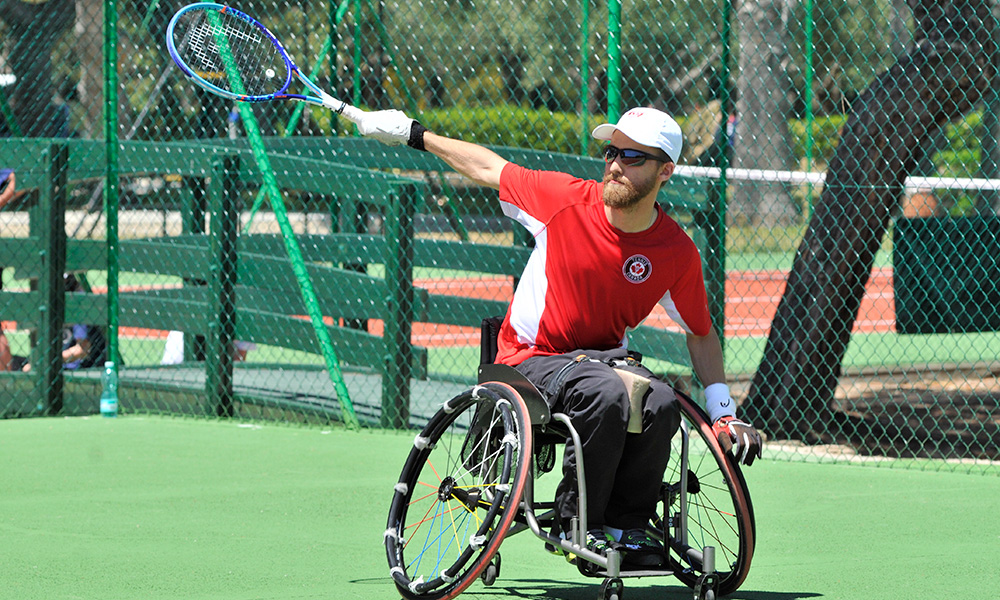
Dr. Rob Shaw, one of Canada’s top wheelchair tennis players, is UBC Okanagan’s 2022 recipient of the Governor General Gold Medal.
Some might think it’s a bit ironic that the winner of UBC Okanagan’s Governor General Gold Medal is already a gold-medal-winning athlete.
But Dr. Rob Shaw, who graduates this week with his Doctor of Philosophy in Interdisciplinary Studies, can quickly explain how much hard work goes into earning an honour of this calibre. Dr. Shaw is a wheelchair tennis player who won a gold medal at the 2019 Parapan American Games in Peru. He is the highest-ranked member of the Canadian wheelchair tennis team and last summer he competed in the Tokyo 2020 Paralympics.
He didn’t get there without a lot of hard work. The same could be said of his accomplishment at UBCO.
Dr. Shaw is the highest-ranked graduate student at UBCO, an honour that has earned him the Governor General’s gold medal.
“Looking at past winners I can’t help but feel humbled by this award,” he says. “Five years ago, my supervisor and I committed to completing a PhD that would make an impact beyond the silos of academia and extend into the community to benefit people living with spinal cord injuries. I’d like to think that this award reflects that we achieved that goal.”
While earning his doctoral degree, his research focused on how peer mentorship can improve the health and wellbeing of people who have incurred a spinal cord injury. While his supervising professor Dr. Kathleen Martin Ginis describes his research as exemplary, she notes he has also become an internationally respected scientist and a community leader.
Throughout his degree, Dr. Martin Ginis says he has embraced an interdisciplinary spirit, but his impact extends beyond the traditional walls of academia and into the community. His leadership and expertise are frequently sought out by local, national and international organizations, and he has an unwavering commitment to examining and resolving pressing societal issues.
“An excellent scientist can produce a lot of great research. But an excellent scientific leader finds the potential in people and has the courage to inspire and support them. Rob has achieved excellence and acclaim as both a scientist and scientific leader,” she adds. “Through his research and leadership, and his outstanding global citizenship, Rob is making the world a better place.”
Dr. Shaw, however, says this award is only possible thanks to the support from Dr. Martin Ginis and others he has worked with along his doctoral journey.
“I am extremely proud of the work we have been able to accomplish, and I owe this award to her, my lab mates, my community partners, and most importantly to my participants who allowed me into their world so that I could try to make a real difference in their lives.”
Dr. Shaw has been described by Dr. Martin Ginis as an outspoken champion of equity, diversity and inclusion.
“He consistently reminds and challenges all of us to think about inclusion and accessibility in how we conduct and share our research with others.”
The importance of inclusion is also reflected in both the name and the criteria of the Lieutenant Governor’s Medal for Inclusion, Democracy and Reconciliation. This week it will be presented to UBC Okanagan student Azzah Al Zahra Farras, who just completed her Bachelor of Arts with a joint major in philosophy, political science and economics.
Shortly after arriving at UBCO in 2018, Farras established a campus-wide chapter of Amnesty International and began hosting conferences and events to examine local and international issues. She coordinated weekly sessions where students could discuss international injustices, while creating a safe space for marginalized students to share their stories and discuss opportunities for students to engage in change.
“Through the Amnesty International chapter, we created opportunities for students on campus to share issues about human rights, protection, justice and conflicts that they care about from their own country,” says Farras, explaining the students had engaging conversations about many issues including the farmer’s protest in India, Tibetan rights to self-determination, the Palestinian rights, and democratic rights for people living in Thailand.
“I am surrounded by a very international community at UBCO and it’s something we should all look forward to in universities,” she adds. “I have a lot of friends from different countries that support me and also celebrate my culture and my beliefs and values as I celebrate theirs. That’s what I’m really happy about.”
In September 2021, she joined the UBC Okanagan Library team as a student representative of the UBC’s Inclusion Action Plan and Indigenous Strategic Plan, where she independently developed projects to highlight Arab, Muslim, Asian, Indigenous and Black voices in literature and academia. Farras built multiple book displays at the library and designed digital LibGuide sites that list resources based on each theme, granting students information and access regardless of their location during COVID-19.
Farras recalls the day when a student approached the service desk and tearfully thanked the library staff saying how encouraging it was to see students with hijabs represented at the library and it helped make her feel included.
“For me, this was a full-circle moment,” says Farras. “Although I did feel isolated in my first year, I was able to change that situation for younger hijab-wearing students. I believe these efforts transpired important representation at UBCO. It raises important conversations on institutionalized racism and discrimination against marginalized groups. I am honoured to be a part of that shift.”
UBCO Librarian Christian Isbister says Farras worked tirelessly to engage the campus community and bring awareness to diverse voices in the library collection. Her book displays were always popular and well-received, and her work on the Book Fairies project helped encourage reading of more diverse authors, including Indigenous, Black, Asian and Arab writers.
“Azzah has dedicated herself to the promotion of inclusion on our campus,” says Isbister. “At the library, she demonstrated great leadership in developing initiatives to highlight diverse voices in our collection, and foster a sense of welcome and belonging for students belonging to marginalized communities. It was a pleasure to get to work with Azzah, and her presence in the library will be greatly missed.”
Also, this week, Anna Bernath, who just completed her Bachelor of Science degree with concentrations in biochemistry and molecular biology, was awarded the Pushor Mitchell Gold Medal Leadership Prize.
The $10,000 prize is the largest donor-funded award available to graduating Irving K. Barber Faculty of Science students. The award recognizes a student who has excelled academically and demonstrated leadership while earning their degree.
Bernath joined Dr. Andis Klegeris’ Cellular and Molecular Pharmacology Lab as a volunteer research assistant, and contributed upwards of 250 hours in the facility. She also conducted research studying the role of microglia—immune cells of the brain—in Alzheimer’s disease. When not in the lab or studying, she worked as a teaching assistant, acting as a liaison between faculty and students.
“I have immense gratitude for the faculty, staff and UBCO colleagues who created invaluable opportunities for growth and leadership, and I hope I made a lasting impact on junior students and excited them about research endeavours,” says Bernath.
The Pushor Mitchell LLP Gold Medal Leadership Award has been presented to a student at UBCO since 2009, explains Andrew Brunton, Managing Partner at Pushor Mitchell.
“Pushor Mitchell is very pleased to see another deserving student receive this award,” says Brunton. “Our firm has been supporting this prestigious award at UBC Okanagan for 13 years now, presented to students based on both academic excellence and community leadership. We applaud this year’s recipient Anna Bernath and wish her luck with her career in neuroscience research.”
Farras and Bernath will be recognized as they cross the stage at Thursday’s convocation while Dr. Shaw will receive his medal Friday morning.
Other University of British Columbia medal (top of class) winners are:
- UBC Medal in Arts: Abhineeth Adiraju
- UBC Medal in Education: Anica McIntosh
- UBC Medal in Engineering: Rachel May
- UBC Medal in Fine Arts: Amelia Ford
- UBC Medal in Human Kinetics: Kenedy Olsen
- UBC Medal in Management: Jo-Elle Craig
- UBC Medal in Media Studies: Jordan Pike
- UBC Medal in Nursing: Camryn McCrystal
- UBC Medal in Science: Megan Greenwood
The post Gold-medal tennis player, human rights activist win UBCO honours appeared first on UBC Okanagan News.
